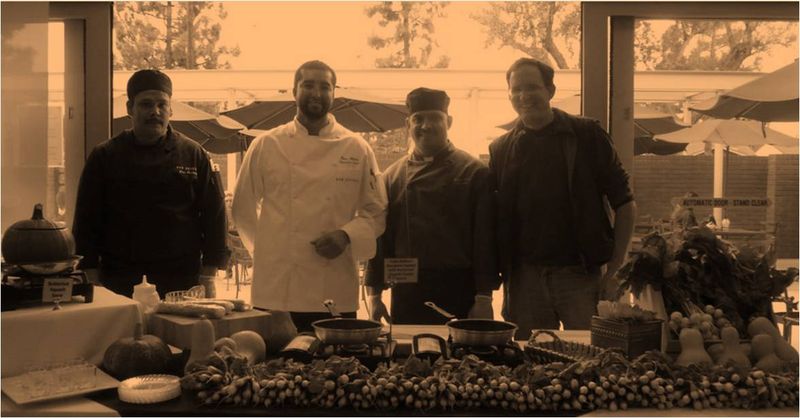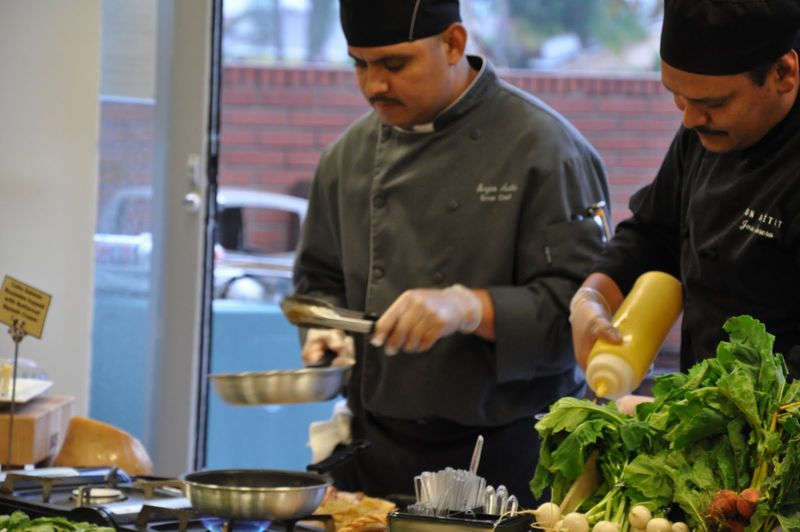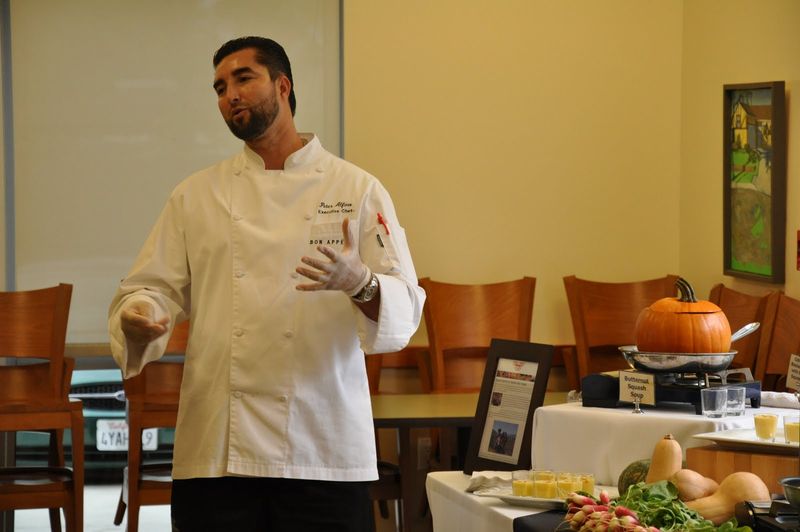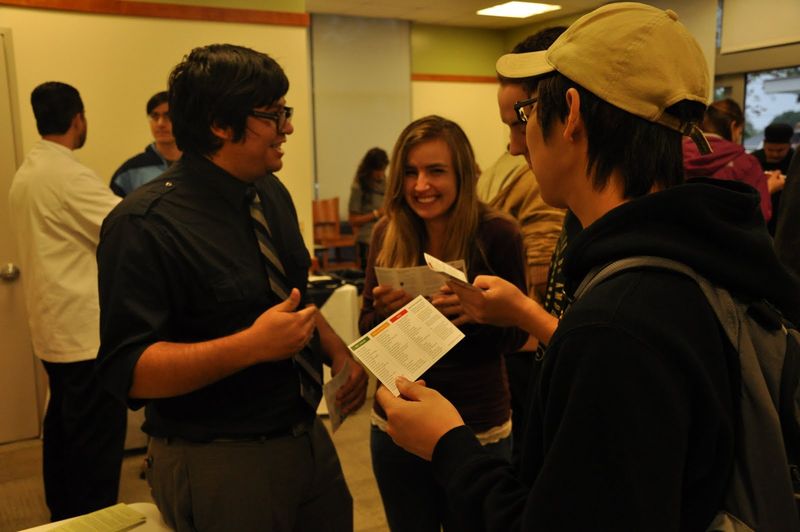Meeting Farmer Bob Knight and Other People Behind the Food at Biola University
- by Vera Chang
 Farmer Bob Knight (on right) with Bon Appétit Management Company Biola University Chefs
Farmer Bob Knight (on right) with Bon Appétit Management Company Biola University Chefs
By Vera Chang, West Coast Fellow, Bon Appétit Management Company Foundation
“Farms are getting huge. Real estate is expensive in California. Farming in the global food economy requires [farmers] to have thousands of acres. Farmers that used to have 10 or 20 acres are now being pressured to buy 4,000 acres.”
We are at the Bon Appétit Management Company Student Ambassador Program at Biola University, a kick-off event for thirty students to get to know some of the people behind food: Bon Appétit chefs, staff, and farmers. Executive Chef Peter Alfaro just spoke about the path that led him to work in the kitchen and his passion for making the food system more sustainable through purchases as a chef. Biology professor and head of the Biola Organic Garden Jason Tressel also shared his insights. He recently became a gardener and since then, has not stopped dreaming about converting conventional landscapes, like lawns, into edible foodscapes, full of vegetables.
Now, Farm to Fork partner Bob Knight is speaking. He is the founder of the Inland Orange Conservancy, a 23 family farm consortium of “Sunkist Refugees” family farmers with neither the interest nor the money to compete in the commodity orange market. The Conservancy grows 300,000 trees of citrus, avocado, and kiwi in Redlands, CA. Bob tells us about the trials of being a small farmer today. “So where does this leave us little farmers that grow in Southern California?” he continues. “With globalization [comes] competition and industrial scale has driven cost down.”
Bob lifts up a wooden crate, a field box that holds 55 pounds of oranges. “Let me offer you some perspective,” he goes on. “In the supermarket, consumers pay roughly $1.59 or $1.99 a pound for oranges. This means the supermarket gets around $100 per box. Guess how much the farmer gets paid for the same [box]?” One student guesses $20. “How about lower than that?” Another guesses $10, then $6. “How about lower?” Another guesses $4. “Lower.” Silence. “We are paid an average of $1 for each 55 pound orange field box.”
How can supermarkets get paid $100 per box while farmers who handle the planting, growing, harvesting, and packing get paid only $1? This sounds fundamentally unfair. Bob continues, “[Because of this system, we small farmers] have to break out of the global distribution network and try to find our customers directly.” Bob sells at the farmers market, to elementary schools through a farm to school program, and also to colleges and university cafés in the area through Bon Appétit. This means, “that instead of getting paid $1 we are paid an average of $5 to $7. Now, I know that still sounds really cheap, but that’s five to seven times more than what we are paid at the supermarket. This makes our farm sustainable. The partnership that we have here at Bon Appétit, the direct funds, and having you eat the food really preserves local farms.”
What’s your food story? As Bob said, we are players in his food story; and, since we all eat, we are also a part of the stories that Chef Peter and Professor and Gardener Jason told. We have the power to vote with our forks and decide what businesses and farms we support. So, let’s choose intentionally. One way to start doing this is to get to know the people behind the food.
Next up? The Biola student ambassadors will visit to the Inland Orange Conservancy to meet the co-op’s other farmers and farmworkers and harvest kiwis.
 Bon Appétit Biola University Sous Chefs Prepare Coho Salmon Roulades
Bon Appétit Biola University Sous Chefs Prepare Coho Salmon Roulades  Bon Appétit Biola University Executive Chef Peter Alfaro
Bon Appétit Biola University Executive Chef Peter Alfaro Bon Appétit Biola University Student Ambassadors with Catering Director Daniel Cruz
Bon Appétit Biola University Student Ambassadors with Catering Director Daniel Cruz